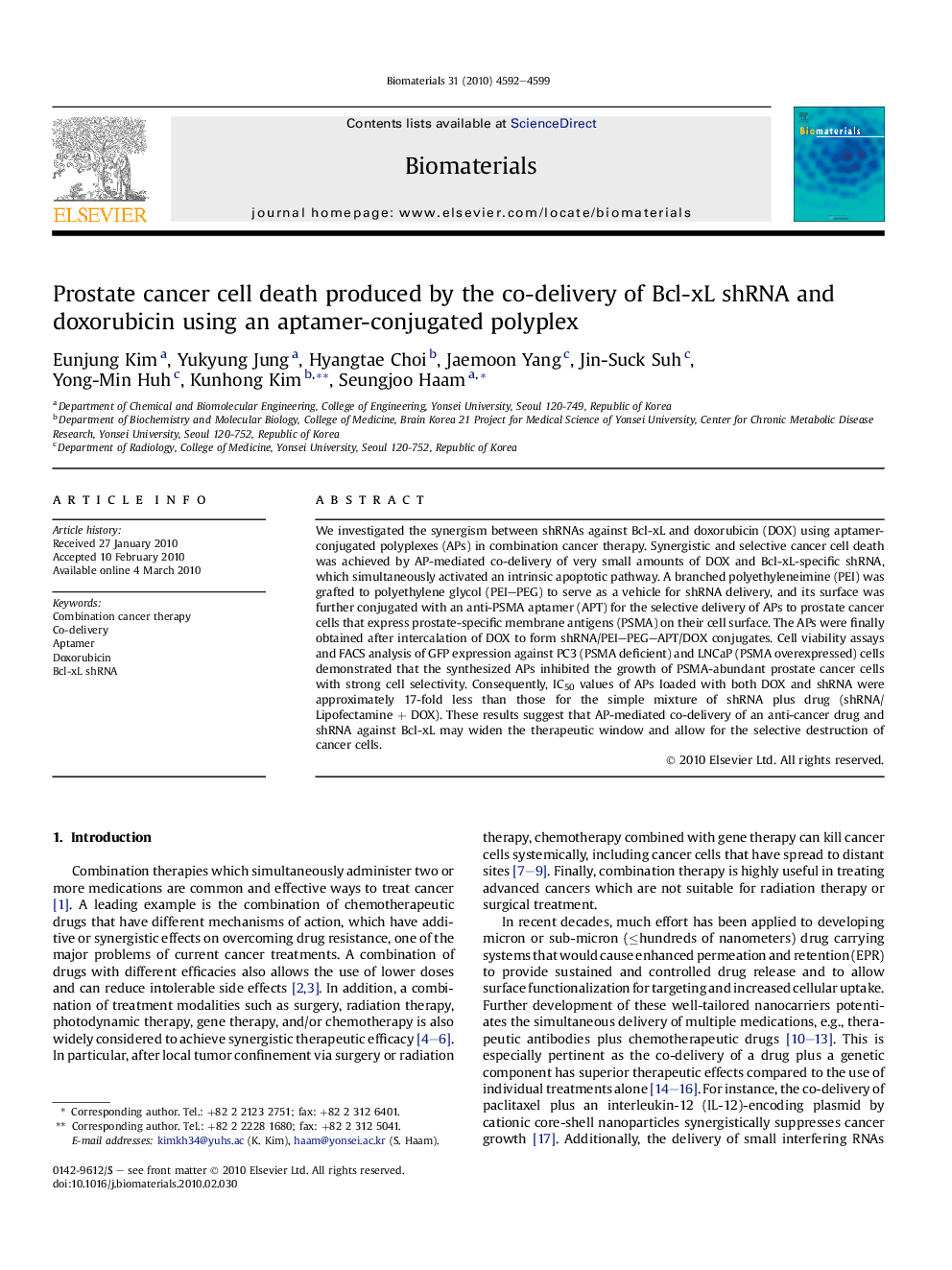| Article ID | Journal | Published Year | Pages | File Type |
|---|---|---|---|---|
| 9014 | Biomaterials | 2010 | 8 Pages |
We investigated the synergism between shRNAs against Bcl-xL and doxorubicin (DOX) using aptamer-conjugated polyplexes (APs) in combination cancer therapy. Synergistic and selective cancer cell death was achieved by AP-mediated co-delivery of very small amounts of DOX and Bcl-xL-specific shRNA, which simultaneously activated an intrinsic apoptotic pathway. A branched polyethyleneimine (PEI) was grafted to polyethylene glycol (PEI–PEG) to serve as a vehicle for shRNA delivery, and its surface was further conjugated with an anti-PSMA aptamer (APT) for the selective delivery of APs to prostate cancer cells that express prostate-specific membrane antigens (PSMA) on their cell surface. The APs were finally obtained after intercalation of DOX to form shRNA/PEI–PEG–APT/DOX conjugates. Cell viability assays and FACS analysis of GFP expression against PC3 (PSMA deficient) and LNCaP (PSMA overexpressed) cells demonstrated that the synthesized APs inhibited the growth of PSMA-abundant prostate cancer cells with strong cell selectivity. Consequently, IC50 values of APs loaded with both DOX and shRNA were approximately 17-fold less than those for the simple mixture of shRNA plus drug (shRNA/Lipofectamine + DOX). These results suggest that AP-mediated co-delivery of an anti-cancer drug and shRNA against Bcl-xL may widen the therapeutic window and allow for the selective destruction of cancer cells.
